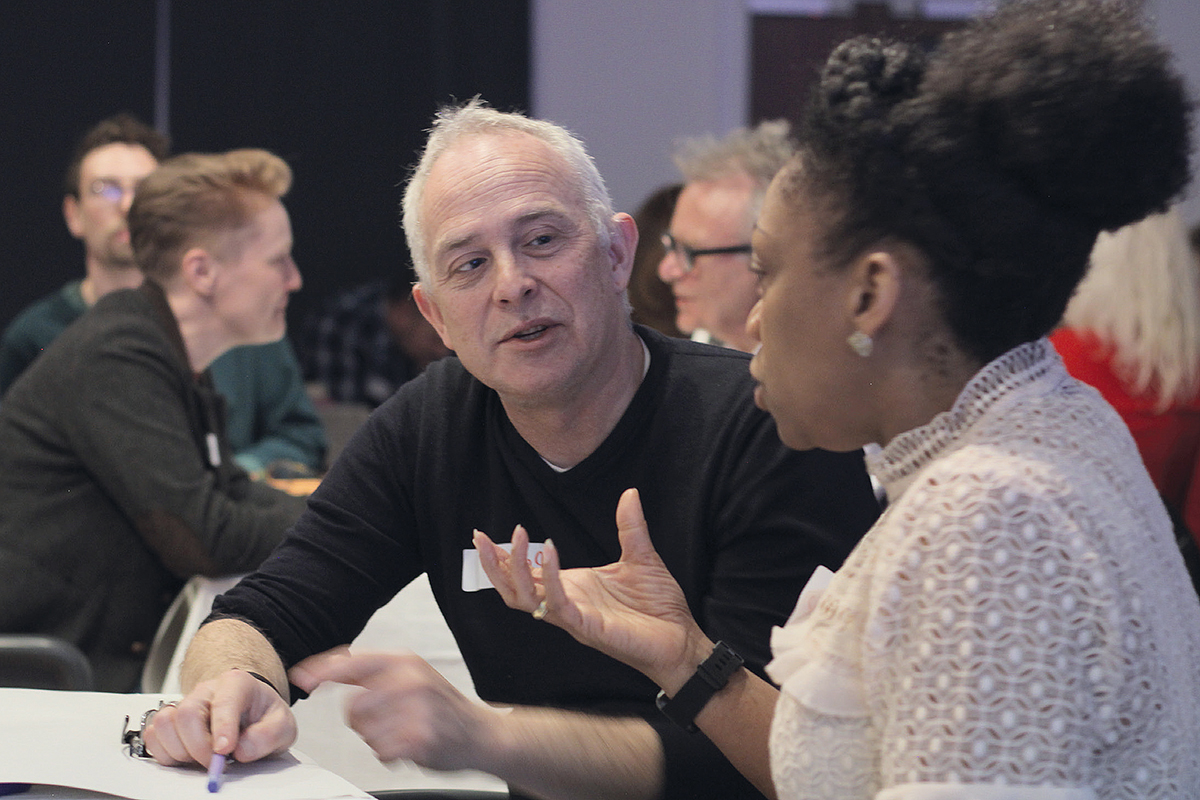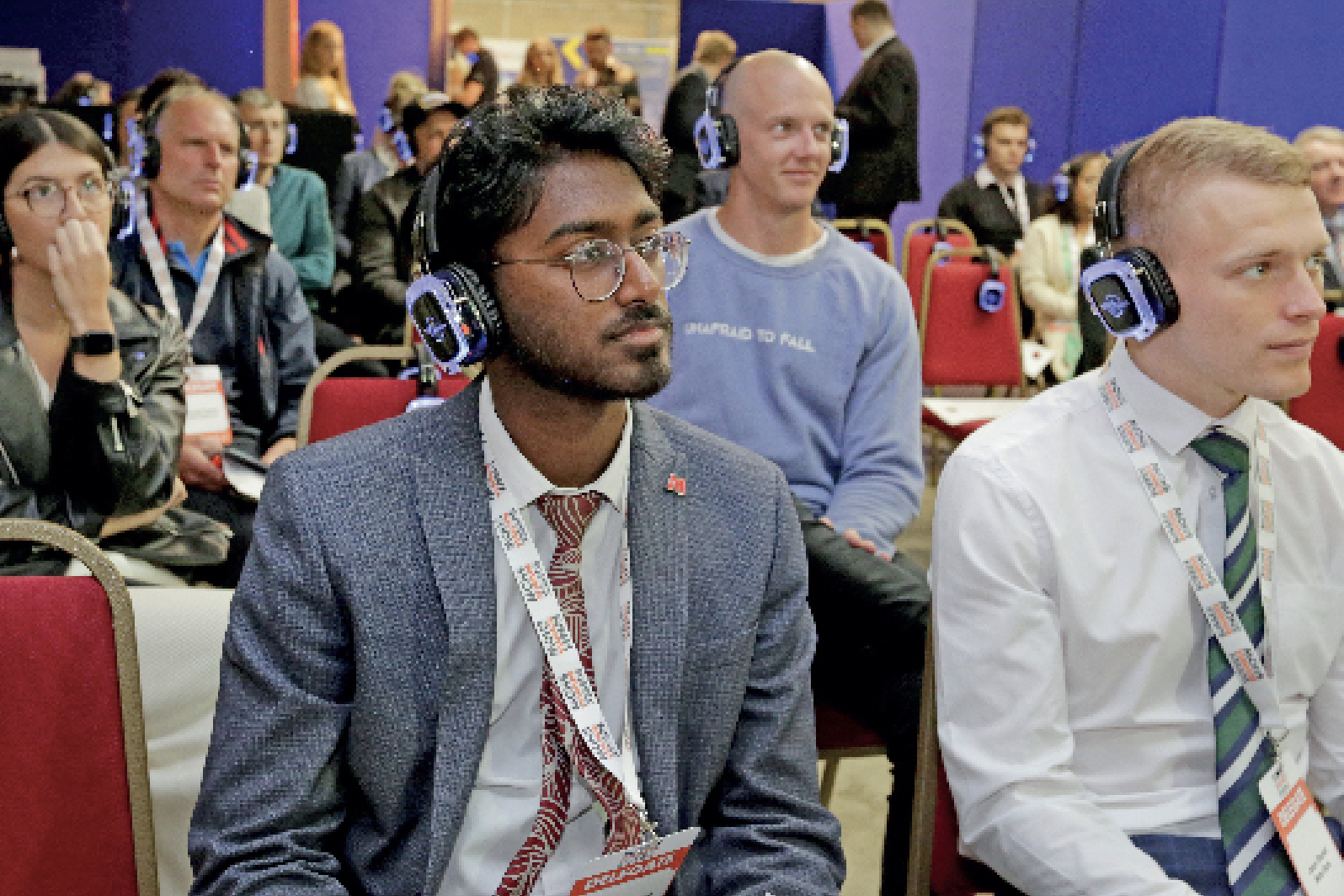
Barney Durrant from Bluebell Digital attended this year’s Brighton Summit: Unite, organised by Brighton Chamber. He shares his key takeaways from Floella Benjamin’s closing keynote
Like a legendary headliner at a music festival, Floella Benjamin burst on stage at Brighton Summit to an energised audience after a day of fascinating and inspirational speakers and workshops.
The crowd (or at least the older members) were taken back to childhood as Baroness Benjamin addressed her “Play School Babies”, beginning a tale which swept us from Trinidad to Beckenham via the BBC, House of Lords, the Queen and Barack Obama.
If we could have sat cross-legged and closed our reading books, then I’m sure we would have. Taken through the round window and straight into her days presenting Play School, which was shown on the BBC from the 1960s into the late 1980s, she recounted how much she learned from making five shows a week.
Love and childhood were the big themes of her keynote, as Floella has dedicated her TV - and later, political - life to looking after children and trying to make life better for them. She spoke of how she wanted kids watching Play School to feel that she loved them, even if they had difficult circumstances at home. She also wanted to show people of colour and their children a familiar face as a black presenter.
“Childhood lasts a lifetime” was the message that she wanted to leave with us. Her entreaty was for us to look after and invest in children and to be their “guardian angels.” From 1983, she had campaigned for there to be a Minister for Children, only realising this aim when Tony Blair’s government created the position in 2003 - and she continues to advocate for children today.
During a happy, early childhood, Floella was proud to be part of the British Empire and sang “Rule Britannia” and “God Save the Queen” with passion, but never learning about or discussing slavery and the origins of African people in the Caribbean at school.
Her family’s love for Britain led to a temporary break up, as her father was drawn to move to London, taking her mother and the younger children. Floella and the older children were left behind in the care of foster parents who treated them badly. Mercifully, this was a relatively brief period, as the family was reunited in Chiswick when they arrived in England in September 1960.
From this start as a Windrush immigrant, Floella was delighted to tell us how she had, 62 years later, helped to bring about the National Windrush Monument, as Chairwoman of the Windrush Commemoration Committee.
Her introduction to British life in the 1960s was not a happy one. They were living eight to a single room, cooking on the landing, and had to use an outside toilet. At school, she was bullied for being black and told to go back to where she came from. Having never encountered racism before, she didn’t understand the nasty words being shouted at her at school.
There were a number of terrible incidents, and having espoused love throughout her speech, Floella revealed she had taken to fighting her oppressors as a young girl. However, she had a moment of revelation when being abused during a food shopping trip, realising that she should stop fighting and just be herself. At that point she adopted a smile as her armour.
Returning to her Play School days, she fought for representation in the stories she read out in every programme, persuading producers to let her read stories featuring children from every race, so the audience at home could see people who looked like them and no-one was left out.
Bringing her speech to an end, Floella shared with us her 4 ‘Cs’.
• Consideration meaning empathy and respect.
• Contentment meaning happiness and no jealousy or regrets.
• Confidence meaning giving love unconditionally, inspiring others and loving yourself.
• Courage meaning truth, justice, equality and standing up for people.
As fitting for the headliner of our festival of inspiration and knowledge-sharing, Floella capped off her tour de force performance with a song, closing the Summit with “Smile”, written by Charlie Chaplin.
There wasn’t a frown or dry eye to be found in the audience.





